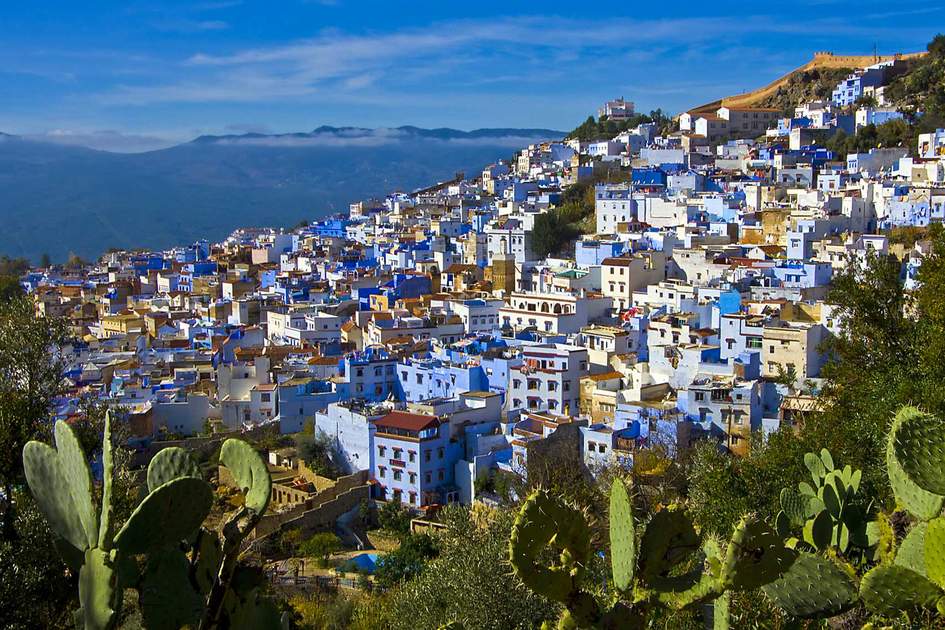Navigating the Morocco Work Visa Process: Types, Requirements, and Opportunities
In an effort to elucidate the intricacies of working in Morocco, we present an in-depth exploration of the Morocco Work Visa Process, encompassing visa types, essential documentation, and application procedures. Morocco, located in North Africa with evident European cultural influences, offers an array of opportunities in sectors such as tourism, agriculture, manufacturing, renewable energy, IT, education, and international business.
How is it like to Work in Morocco?
Working in Morocco can offer a unique and enriching experience, blending professional opportunities with a rich cultural backdrop. Here are some aspects to consider:
Diverse Sectors: Morocco has a diverse economy with opportunities in sectors such as tourism, agriculture, manufacturing, renewable energy, IT, education, and international business. The country's strategic location has made it an attractive hub for businesses.
Language: French and Arabic are the official languages, and proficiency in these languages can be an asset. English is also commonly used in international business settings.
Cultural Richness: Morocco is known for its rich cultural heritage, diverse traditions, and vibrant markets. Working in Morocco provides an opportunity to immerse yourself in a unique blend of Arab, Berber, and French cultures.
Cost of Living: The cost of living in Morocco is generally lower than in many Western countries. This includes accommodation, food, and transportation, making it more affordable for expatriates.
Visa Regulations: Navigating the visa process is essential. For employment, a Long-Term Visa and a work permit are required. The process involves securing a work permit before applying for the visa at the Moroccan embassy or consulate in your home country.

Business Etiquette: Moroccan business culture may differ from what you are accustomed to. Building personal relationships is often valued, and meetings may involve socializing. Punctuality is appreciated, but business discussions may be relaxed.
Quality of Life: Morocco offers a high quality of life, particularly in cities like Casablanca and Marrakech. There are modern amenities, healthcare facilities, and a range of recreational activities.
Expatriate Community: Morocco has a growing expatriate community. Networking with fellow expats can provide valuable insights into local life and the professional landscape.
Work-Life Balance: The work culture in Morocco may include a balance between professional and personal life. Fridays are considered a holy day, and businesses may close earlier.
Local Customs: Understanding and respecting local customs and traditions is important. Morocco is a Muslim-majority country, and cultural awareness enhances positive interactions.
Before deciding to work in Morocco, thorough research and understanding of the cultural and professional landscape are essential. It's advisable to connect with expatriates already living and working in the country to gain insights into the day-to-day experiences and challenges.
Types of Morocco Work Visa
Morocco extends a Long-Term Visa catering to individuals engaged in employment, studies, or family reunification. This visa, valid for three months, serves as a precursor to the residency card application within Morocco. Simultaneously, prospective employees must secure a Morocco Work Permit to initiate employment processes.
You may also like
- Paraguay Work Visa 2024
- The Essential Guide to EU Blue Card in 2024
- Norway's 2024 Employment Opportunities: International Workers in Demand Due to Skill Shoratges
Morocco Work Permit
Securing employment in Morocco necessitates the acquisition of a work permit. Employers play a pivotal role in this process, applying on behalf of the employee at the Ministry of Employment and Vocational Training.
Morocco Work Visa Requirements
Documentation requirements for the Morocco Work Visa include general items such as the application form, valid passport, photographs, proof of accommodation, travel insurance, and financial means. Additionally, employment-specific documents like the employment contract, work permit, and certificates of professional qualifications are crucial. Requirements may vary based on nationality, warranting verification with the Moroccan embassy or an online visa application platform.
How to Apply for the Morocco Work Visa?
Initiating the process involves securing a work permit before visa application. After obtaining the work permit, applicants can apply for the relevant visa at the Moroccan embassy or consulate in their home country. Subsequently, within three months of entry on a long-term visa, applicants must apply for a Residence Card (Carte de Sejour) from the local Prefecture de Police.
Visa Exempted Countries
Morocco welcomes citizens from numerous countries without a visa requirement for stays up to 90 days. Countries on this list include Algeria, Australia, Brazil, Canada, European Union nations, Japan, United States, and others. The Moroccan Ministry of Foreign Affairs website provides a comprehensive guide to embassies and consulates worldwide.
For additional details and updates, please refer to the Moroccan Ministry of Foreign Affairs Website.
Also don't forget to check out our Visa Category for more opportunities worldwide.

0 comments